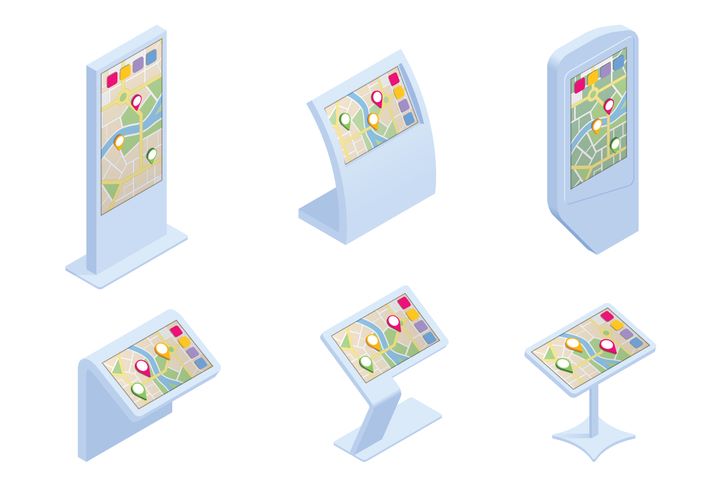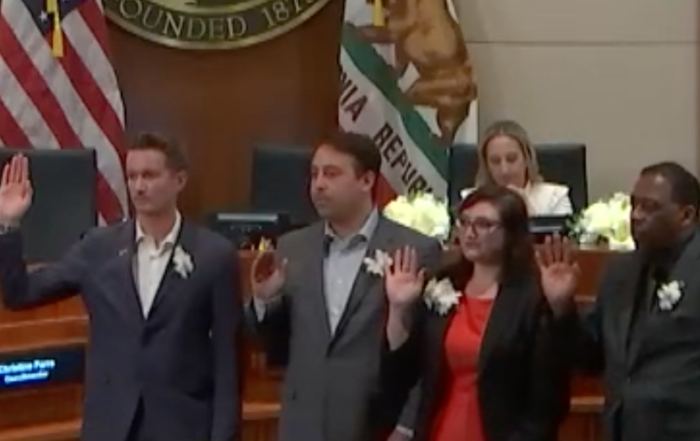A “No” vote from Los Angeles Fifth District Councilmember Katy Yaroslavsky was not enough to stop the progress of a proposed project to install interactive kiosks throughout the city.
In its meeting on Monday, the Budget, Finance, and Innovation Committee of the Los Angeles City Council approved a motion to conduct a Request for Proposal (RFP) process for the installation of interactive kiosks in public right-of-way locations throughout L.A. Yaroslavsky voted against the measure, but the remaining four committee members voted in favor.
These kiosks would be easily accessible digital kiosks that “look like a directory that you would see in a mall” and would have information on restaurants, small businesses, services and other places of interest in the city.
The installation of interactive kiosks was originally proposed to fulfill the need for “a universal, integrated, real-time, digital system of wayfinding to be implemented throughout the Greater Los Angeles metro area” outlined in the 2020 Tourism Master Plan.
The city — through its City Tourism Department — has contracted with the Los Angeles Tourism and Convention Board since 1976 to help sell the city as a destination and prepare it for tourists and conventions. But in 2020, it created the city of Los Angeles Tourism Cabinet to help further the goal of preparing for increased tourism that will come with the city hosting the Summer Olympics in 2028.
A motion, originally presented in October 2022, called for Los Angeles to award a sole source contract to IKE Smart City LLC, a company that was picked out through an RFP process conducted by the city of Houston. However, this was amended to open the project up to a locally-based RFP search.
Awarding the contract directly to IKE Smart City instead of conducting a local RFP search was one of several complaints that have been presented regarding this project. Prior to Monday’s meeting, several neighborhood boards — including the Venice Neighborhood Council, Mar Vista Neighborhood Council, West Los Angeles Neighborhood Council, and Hollywood Neighborhood Council — submitted Community Impact Statements with their reasons for opposing the kiosks.
Aside from the lack of a local bidding process, the general concerns shared amongst most neighborhood’s Community Impact Statements are:
- The project will create negative environmental impacts, and an environmental impact study has not been done for the project
- A financial study should be done because the kiosks will be using land on the public right of way
- More safeguards need to be in place to protect data and prevent “data harvesting” for advertisements
- The kiosks and their displays will create a distraction for drivers on the road and will clutter the sidewalks
With regards to the potential safeguards for data and whether that would be part of evaluating which company would be selected for the contract, City Tourism Department Executive Director Doane Liu, who was at the meeting to answer questions regarding the proposal, said that these complaints were the first he had heard.
He said there are currently no concrete plans to add requirements for data protection as part of the proposal, but they could be added. The City’s Tourism Department will be issuing the RFP for the project, and Liu says they have been working on this endeavor for “close to four or five years.”
Yaroslavsky asked about exactly how the locations for the kiosks would be selected. Liu explained that nothing voted on in the meeting would result in kiosks going up. He said that the Tourism Department originally envisioned there to be a 300 to 400-foot buffer between these kiosks and other pieces of street furniture.
Liu also noted council offices would have the last say on any kiosk site approval in the original plan and said working closely with the council offices has always been a part of the plan for this project. He said that the original vision is to have roughly 10 per district — potentially more if a district wanted them — and expected them to be placed in areas with high foot traffic to serve the most pedestrians.
Several council members raised concerns with regard to the potential distraction to drivers the digital displays could cause. According to Liu, they have always contemplated having kiosks in the street right of way and perpendicular to the road to keep people from using it with their backs to traffic. The configuration or direction could be different, but placing kiosks on private property is not envisioned as part of the proposal.
Notably, the city will be looking for a contractor who is willing to take on the initial capital expenditure for the project and share any revenues generated with the city. Liu said that there are no thoughts on the timeline for finishing the RFP yet, but the Tourism Department plans to work closely with the city attorney throughout the process.
Digital Image by Golden Sikorka
Stay informed. Sign up for The Westside Voice Newsletter
By clicking submit, you agree to share your email address with Westside Voice. We do not sell or share your information with anyone.








